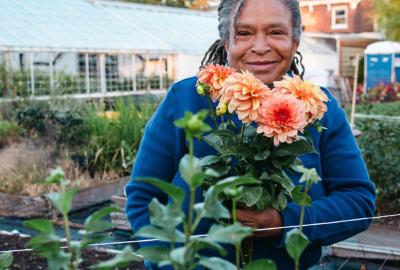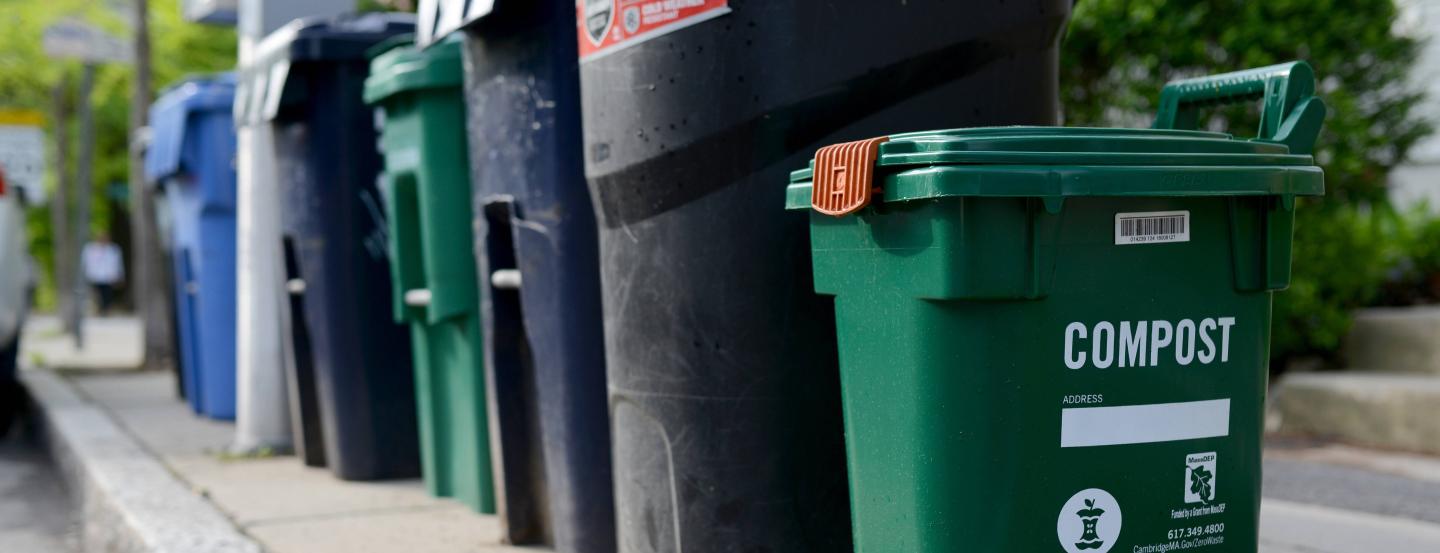
5 ways to compost if you don't have a yard
Dumping food scraps and yard waste into your trash not only makes your trash smell: It’s also bad for the climate.
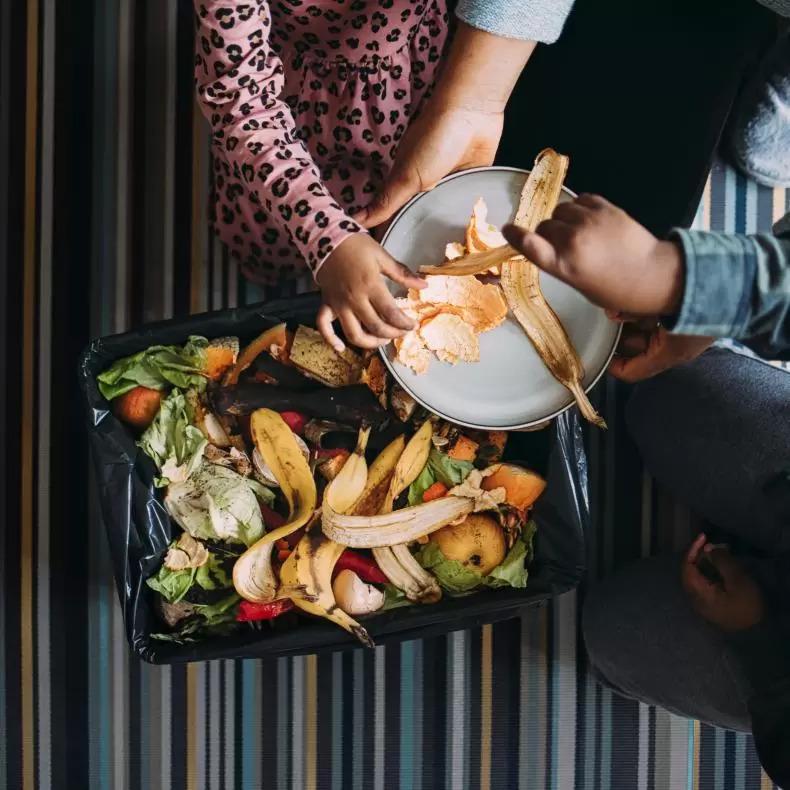
In the U.S., food waste that ends up in landfills creates as much climate pollution each year as 13 million cars. (That pollution comes in the form of the dangerous greenhouse gas methane.)
You can avoid the stench and help the climate by composting your old apple cores and banana peels.
But what if you don’t have a backyard? Or if futzing around with a pitchfork is definitely not your thing?
Fear not, landless or layabout environmentalists! There are a growing number of options for those of us who don’t want to, or can’t, get our hands dirty.
1. Check in with your city
Almost 25 years ago, San Francisco became the first major American city to start a curbside municipal composting program. Fast-forward to today: Once a week, residents of the City That Knows How bring green bins filled with food scraps, yard trimmings and food-soiled paper to the curb, where they’re picked up and turned into nutrient-dense soil used on local farms.
That first program has now inspired 710 communities to offer municipal curbside or drop-off options to 15 million households, according to a 2023 report.
Your local sanitation department can tell you if yours is one of them.
2. Community collaborations
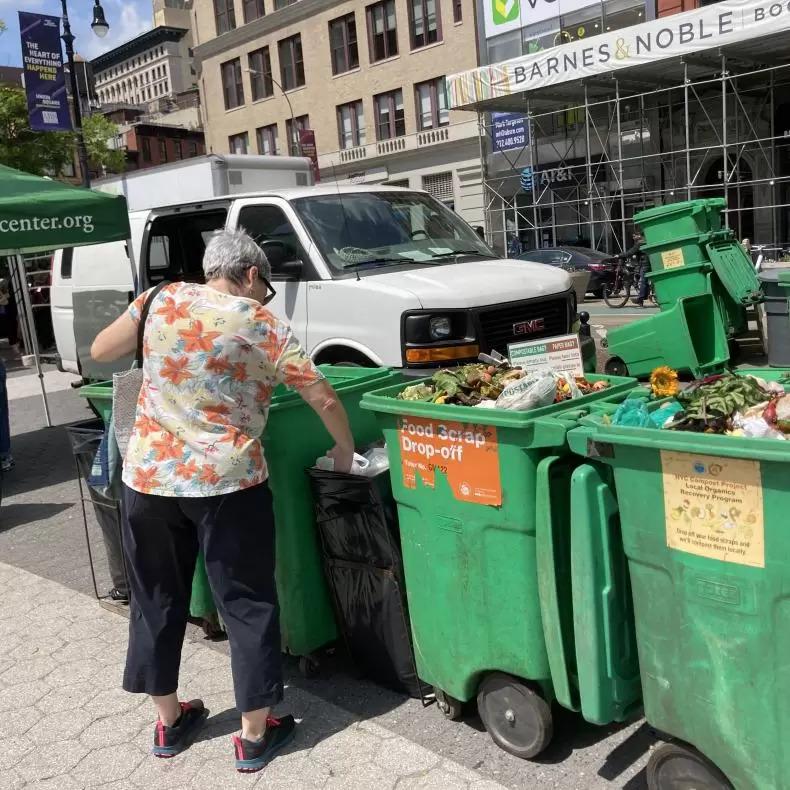
Elsewhere, local activists and advocates aren’t sitting around waiting for local governments to get in on the action.
Around the country, community composters, community gardeners and other folks who know the benefits of composting have been nurturing drop-off and other compost programs for decades.
The Institute for Local Self-Reliance offers a map of community compost sites around the country. So does the activist group Makesoil.org. And, of course, a quick internet search can help locate options near you.
3. Subscription services
A growing number of companies and community groups will collect your organics for composting for a fee. A bunch even use bikes as transport.
A few cost as little as $2 a week, though the average price runs about $30 a month, says Brenda Platt, director of ILSR’s Composting for Community program. The website Litterless can help you find local compost services, as can, of course, an internet search.
4. Countertop “composters”
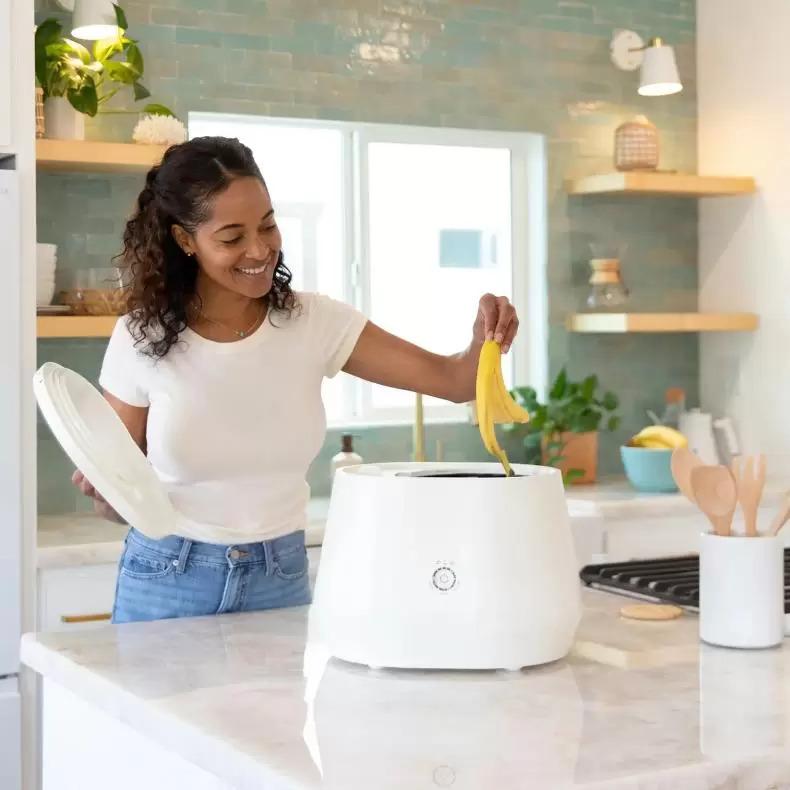
Social media buzzes with ads for countertop gizmos that promise to break down food scraps (and in some cases, even compostable plastics) into nutrient-dense, organic “fertilizer,” usually in a matter of hours.
These machines keep rotting carrot peelings and berries out of the landfill. That’s a good thing. But are these devices actually composters? Not exactly.
Real compost has been chewed up by microbes and digested into something stable that will enrich soil in a multitude of ways.
By contrast, countertop 'composters' grind up and dehydrate whatever you put in them. What results will eventually break down in soil, and it can be used as a feedstock for compost too. But too much of the raw stuff can harm your plants in the short-term. So be careful how you use it.
- 5 BIG things you can do today to fight climate change
- Down to Earth: My months of leftovers, (not) composting and not wasting food
5. Speak up for soil
Even if you can’t compost where you live, you can help advance efforts to make composting more widely available. The U.S. Composting Council offers an online advocacy toolkit that can help you advocate for legislation, government programs and policies that expand the availability of composting.
Get together with your friends and neighbors and see what you can get your local government to do.
From those efforts, who knows what might grow?


